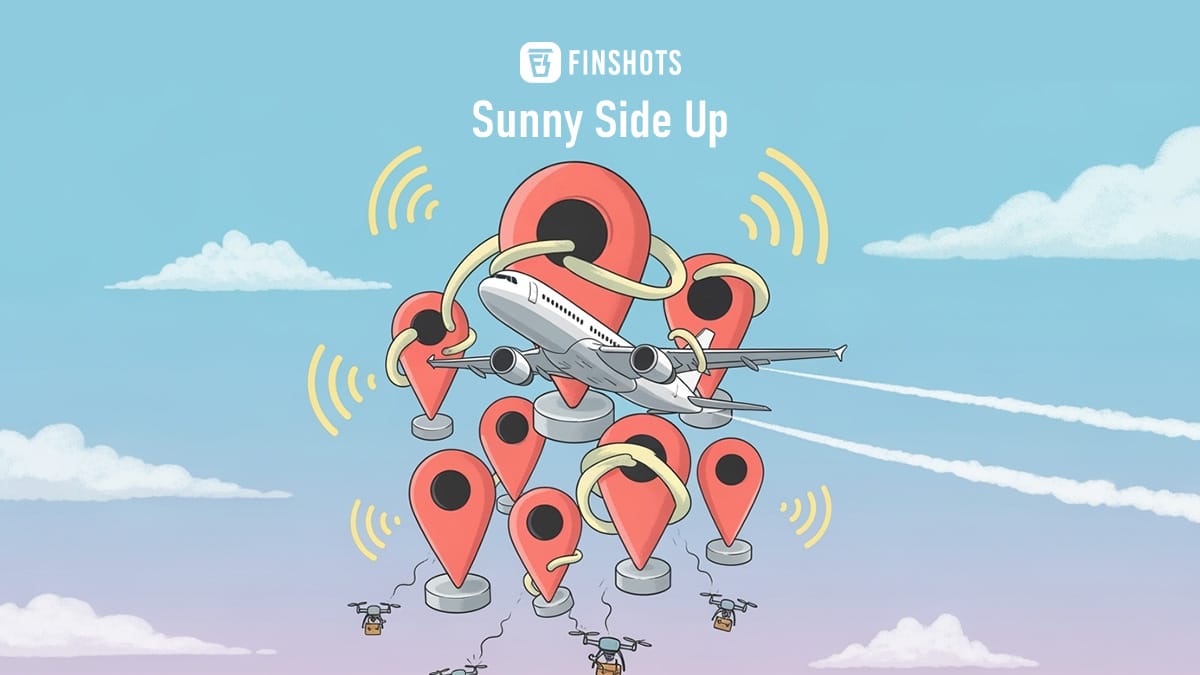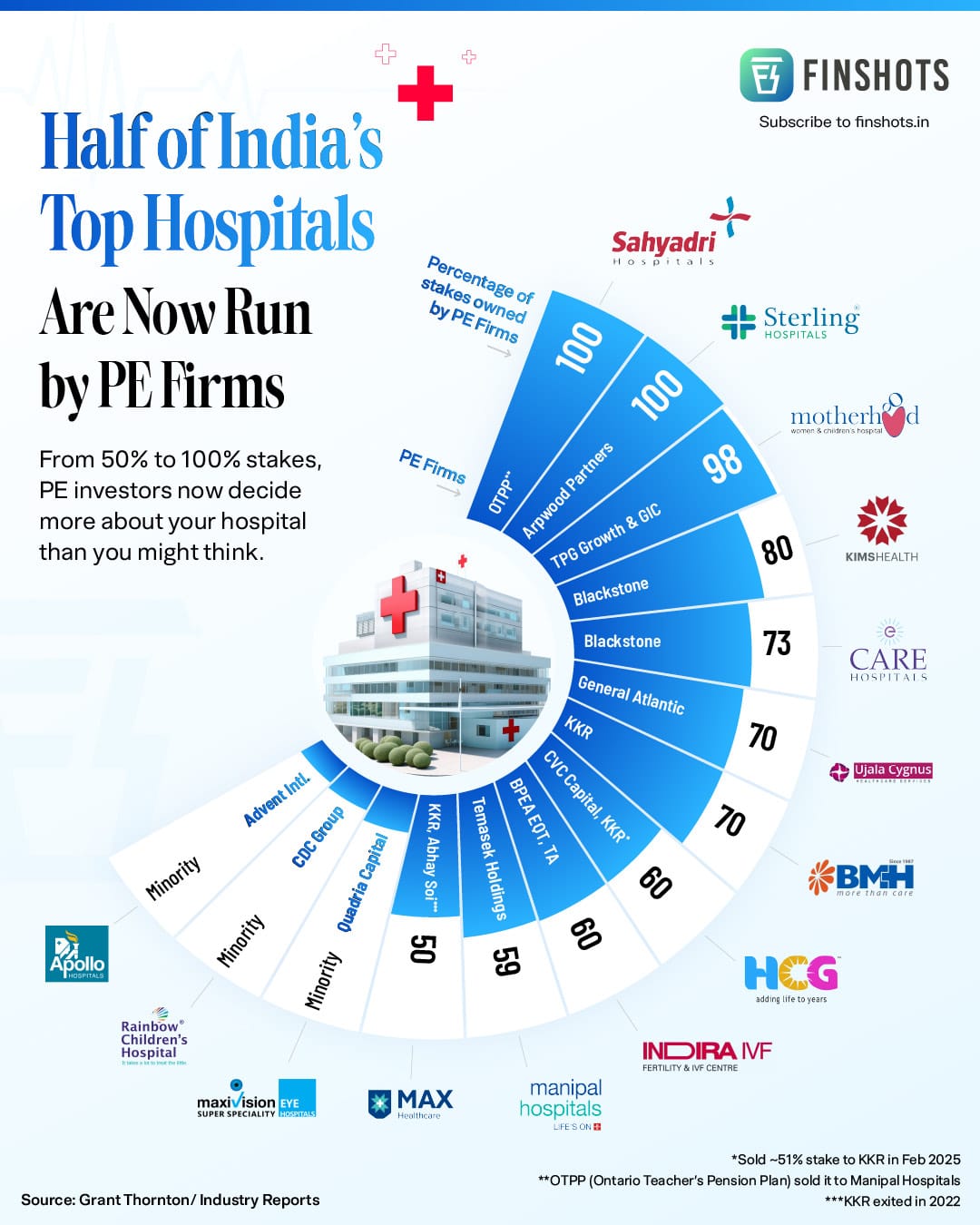Jammed planes, why US likes corks and more...

Hey folks!
Something unusual has happened in the saga of the US slapping tariffs on countries left, right and centre.
Corks or the humble bottle stoppers made from the bark of cork oak trees, coming in from the EU, have been spared with no tariffs.
Now, you might wonder why we’re making this look like a big deal.
Well, cork has been officially tagged in the US-EU trade agreement as an “unavailable natural product”. And such carve-outs are rare, which makes this little cork exception all the more interesting.
So why is cork so special, you ask?
For starters, the US is the world’s fourth-largest wine producer, responsible for about 10% of global supply. And wine needs corks. They seal bottles just right — letting in a tiny amount of oxygen so the wine ages gracefully. That’s why nearly 65% of premium American wines use cork stoppers. But here’s the catch. Almost all of them come from Portugal, the world’s cork powerhouse. In fact, after France, the US is Portugal’s biggest cork customer.
Okay, but can’t the US just make its own corks?
Well, not really. Cork might look simple, but producing it isn’t. Cork oak trees grow mainly in the Mediterranean and don’t take well to being transplanted to the US. Even if they did, the wait is brutal — 25 years for the first harvestable bark, and then another 9 years before you can strip it again. And harvesting isn’t a factory job either. It takes skilled hands to carefully peel the bark without killing the tree.
In fact, the US actually gave this a shot during World War II, when cork was in huge demand for tanks, planes, weapon systems and even refrigerated containers. With supply chains squeezed, they tried planting cork oaks domestically. But between the painfully long growth cycle and the lack of skilled harvesters, the experiment fizzled out.
Sure, there are substitutes like screw caps, but most vintners (winemakers) still swear by cork since it’s sustainable, biodegradable and most importantly, it keeps the wine happy.
So when the US slapped a 15% tariff on most EU imports, cork was left untouched. Because let’s face it. If cork gets expensive, it’s American wine that takes the hit. And no one in Washington wants that.
In the end, the exemption is a win-win. Portugal keeps selling cork. And the US quietly protects its own wine industry. Smart, isn’t it?
Here’s a soundtrack to put you in the mood 🎵
Swali Hu by Donn Bhat
You can thank our reader, Monu Arora, for this lovely rec.
Ready to roll?
What caught our eye this week 👀
Planes get jammed and what’s saving them
There are few things more unnerving than being on a plane when the screens in the cockpit suddenly go out and the pilots announce they can’t figure out which direction to fly because the navigation is jammed.
But that’s what happened a few days back as Ursula von der Leyen, the European Commission President, flew into Bulgaria. One minute the aircraft was happily following polite instructions from satellites thousands of kilometres above, the next it was as if someone had switched the world off.
Next? Well, the pilots seemed cool as they ditched the screens and landed like it was 1985 with the help of paper maps!! EU officials were less amused though. They suspect the GPS was jammed in a Russian operation. Like the ones Moscow uses to confuse Ukrainian drones. According to Bulgarian officials, though, this has become so frequent that individual cases like von der Leyen's are no longer specially investigated.
So how does this jamming actually work? GPS signals are incredibly faint, like a light bulb seen from space. A jammer on the ground simply screams louder on the same frequency, drowning them out. Think karaoke night, where someone grabs the mic and drowns out the singer. Only this time, the song is your navigation. “Spoofers” take it further: they don’t just shout; they sing the wrong song, tricking planes into believing they’re somewhere they’re not.
And this isn’t rare. NATO’s logged nearly 80 incidents of GPS interference in Europe this year alone. Estonia says 85% of flights have had GPS disruptions. Lithuania, meanwhile, has seen a 22-fold spike in a year. And the scariest part? Jammers don’t cost much.
So, countries like those in Europe are betting big on the EU Galileo space project, its own constellation of satellites, more accurate than GPS and with encrypted signals that are harder to jam. India’s building too. Its NavIC (Navigation with Indian Constellation) covers the subcontinent and Indian Ocean. It’s already mandatory in new commercial vehicles and slowly edging into smartphones. Unlike GPS, NavIC uses multiple frequencies, which makes it more resilient to interference, and, crucially, gives India its own sovereign navigation system.
Meanwhile, the anti-jamming industry is booming — worth $4 billion in 2023, projected to more than double by 2030.
The cheeky truth? Maybe it’s that we’ve grown too used to satellite signals. Flights, ships, farms, even our phones — everything assumes the system will never fail. But this incident was a reminder that these invisible threads are fragile, and modern wars can spill quietly into everyday skies.
Which is why backups matter. Be it old maps, alternate systems, even plain human skill!
Infographic 📊

📺India’s Healthcare Crisis: Why you’re paying more for less
India’s healthcare sector is booming, with hospitals raking in record profits.
But here’s the catch. Patients are struggling to find beds, and access to basic services is shrinking. So how is it that hospitals are making more money than ever, yet accessibility seems to be at an all-time low?
In this episode of Finshots TV, we break down the shocking truth behind India’s healthcare crisis, from private equity firms driving up profits by prioritising high-margin procedures, to the complex game of patient allocation. Click here to check it out.
Readers Recommend 🗒️
This week, our reader Chinmay Agarwal, recommends reading Cobalt Red by Siddharth Kara.
He says,
I recently finished reading Cobalt Red by Siddharth Kara...
Cobalt Red is not an easy read — and that’s precisely why it’s so important. Siddharth Kara does not hesitate to present the truth in its rawest, most unfiltered form. His direct, first-hand accounts of child labour, human trafficking, and environmental destruction in the cobalt mines of the Democratic Republic of Congo leave a lasting impact. This is not just a book filled with statistics or secondhand stories; it’s a deeply human narrative that forces you to confront the uncomfortable realities behind the technology we use every day...
This book made me pause and reflect on my own privilege. While some of us worry about charging our devices or upgrading to the latest phone, there are children digging through toxic earth with their bare hands, just to survive. Cobalt Red is a rare and vital reminder that behind every convenience lies a cost — one that is too often paid by those whose stories are rarely told.
It’s not just a book — it’s a wake-up call. And it deserves to be read widely.
Thanks for the rec, Chinmay!
Finshots Weekly Quiz 🧠
It’s time to announce the winner of our previous weekly quiz. And the winner is…🥁
Arijit Singharoy! Congratulations. Keep an eye on your inbox and we’ll get in touch with you soon to send over your Finshots merch.
And for the rest of you, check out our Weekly Wrapup for your chance to win some exclusive Finshots merch. All you have to do is, answer all the quiz questions correctly by 12 noon on September 12th (Friday) and tune in to our Sunny Side Up next week to check if you got lucky.
That’s it from us this week. We’ll see you next Sunday!
Until then, send us your book, music, business movies, documentaries or podcast recommendations. We’ll feature them in the newsletter! Also, don’t forget to tell us what you thought of today's edition. Just hit reply to this email (or if you’re reading this on the web, drop us a message at morning@finshots.in).
🖖🏽
Don’t forget to share this edition on WhatsApp, LinkedIn and X.
